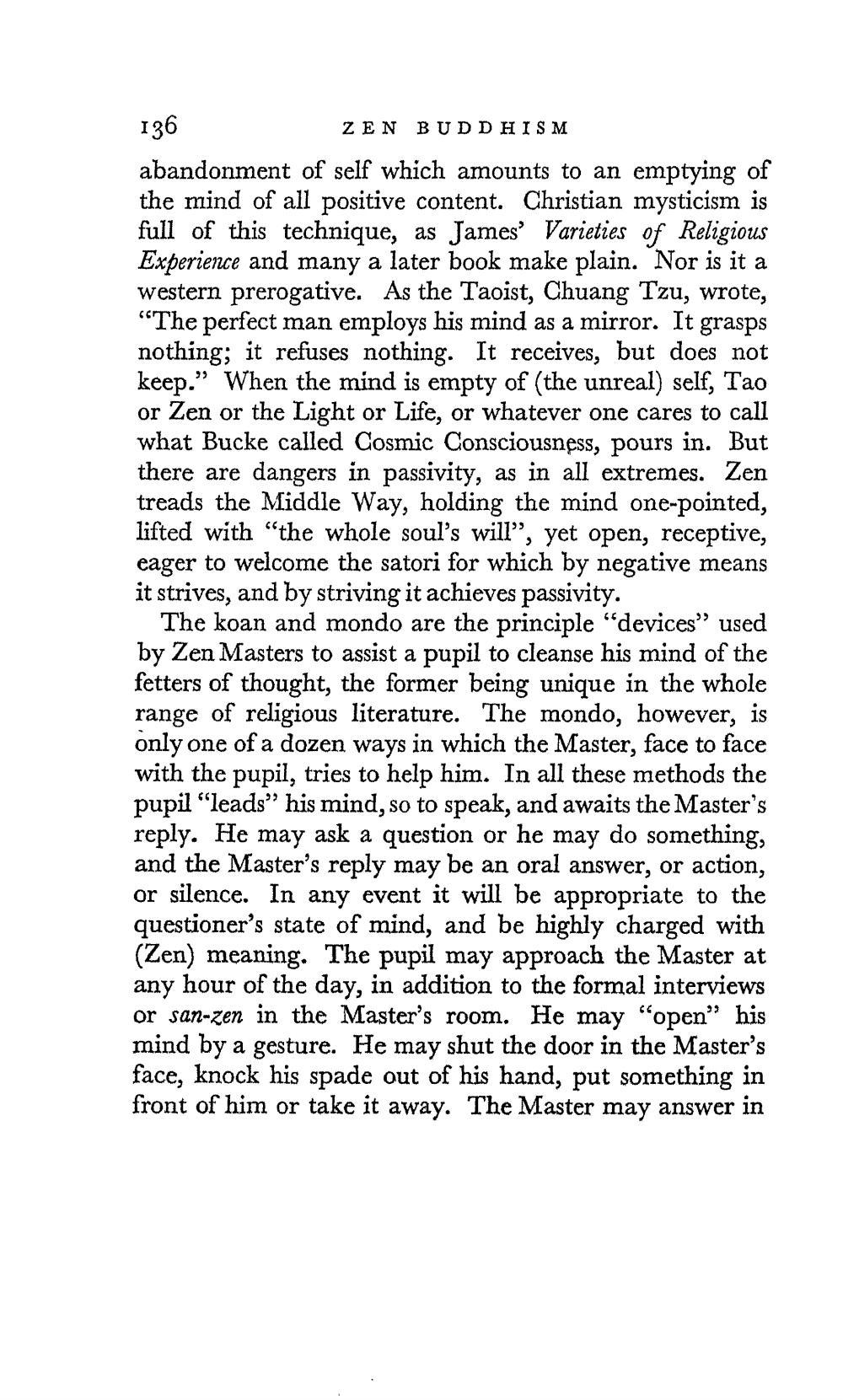________________
136
ZEN BUDDHISM
abandonment of self which amounts to an emptying of the mind of all positive content. Christian mysticism is full of this technique, as James' Varieties of Religious Experience and many a later book make plain. Nor is it a western prerogative. As the Taoist, Chuang Tzu, wrote, "The perfect man employs his mind as a mirror. It grasps nothing; it refuses nothing. It receives, but does not keep." When the mind is empty of (the unreal) self, Tao or Zen or the Light or Life, or whatever one cares to call what Bucke called Cosmic Consciousness, pours in. But there are dangers in passivity, as in all extremes. Zen treads the Middle Way, holding the mind one-pointed, lifted with "the whole soul's will", yet open, receptive, eager to welcome the satori for which by negative means it strives, and by striving it achieves passivity.
The koan and mondo are the principle "devices" used by Zen Masters to assist a pupil to cleanse his mind of the fetters of thought, the former being unique in the whole range of religious literature. The mondo, however, is only one of a dozen ways in which the Master, face to face with the pupil, tries to help him. In all these methods the pupil "leads" his mind, so to speak, and awaits the Master's reply. He may ask a question or he may do something, and the Master's reply may be an oral answer, or action, or silence. In any event it will be appropriate to the questioner's state of mind, and be highly charged with (Zen) meaning. The pupil may approach the Master at any hour of the day, in addition to the formal interviews or san-zen in the Master's room. He may "open" his mind by a gesture. He may shut the door in the Master's face, knock his spade out of his hand, put something in front of him or take it away. The Master may answer in




